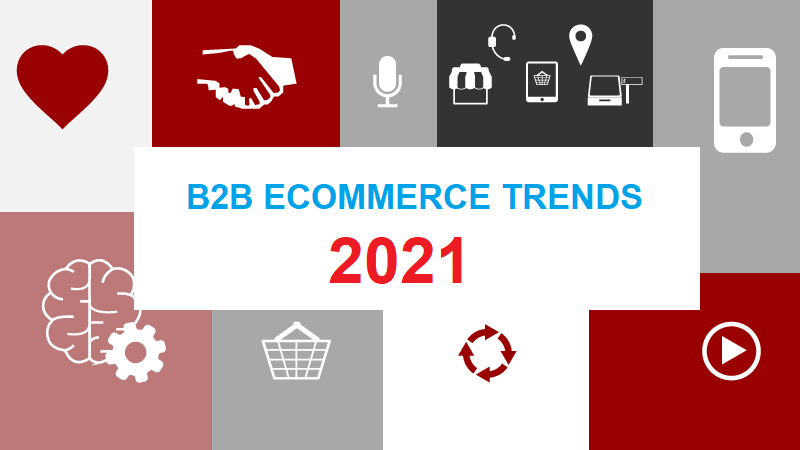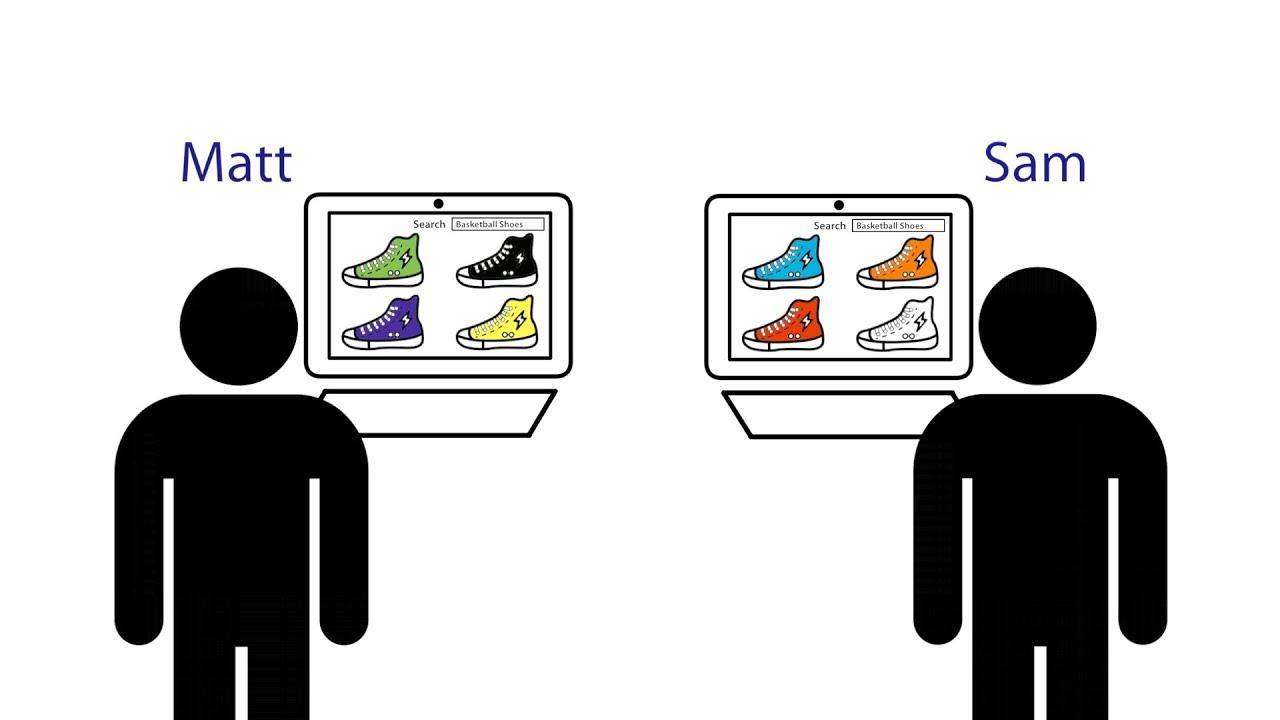Finally, this tragic year is coming to an end. However, the pandemic horror is unstoppable, and honestly, people have now learned to live with it.
On the other hand, 2020 was a magnificent year when it comes to business-to-business eCommerce. All those business organizations who were holding on to traditional B2B business methods have shifted their business on this digital platform.
The B2B eCommerce market is growing massively; companies are no more hesitant to invest in this optimal business platform. However, it got stuck when the global pandemic broke out but now it is accelerating and has reached pinnacles.
Moreover, at the end of 2019, certain predictions were made regarding B2B trends for 2020. Similarly, when this year is about to end, new B2B eCommerce trends are predicted for the upcoming year, and every B2B business must follow them to excel in this emerging eCommerce business world.
Without any further ado, let’s dive in to find out which B2B trends will rule the B2B eCommerce market in 2021.
Table of Contents
Business-to-Business Trends for 2021

Transparency is your key to success
Transparency is critical to any business, especially in 2021, when companies are going to be entirely online.
Traditionally, B2B buyers previously had more opportunities. Buyers used to have face-to-face interactions with brands in showrooms and trade shows. It was way easier to check the product and decide whether they should purchase it in bulk or not.
When B2B is shifting on eCommerce platforms, interactions are more virtual. However, it doesn’t mean transparency product quality and price should be compromised.
When everything goes digital, it becomes hard to trust some brand and shop from it. For this reason, buyers want to see transparent pricing on B2B eCommerce stores.
Shoppers trust brands who can keep the product quality and price transparent on their B2B eCommerce stores.
This is undoubtedly that one trend on which you cannot compromise in 2021.
Personalizing Shopping Experience
In online shopping, transparency is not the only key to success; personalizing the shopping experience is equally important.

One out of three buyers prefers to shop from brands who personalize the whole shopping experience with features like, predictive ordering functionality, AI, one-click ordering, customized product catalogues, and many more.
Online business organizations who invest in these tools including enterprise resource planning software, data collection software, and customized B2B eCommerce stores can showcase their products in a unique way that becomes the centre of the attention among B2B customers.
Industry research proves this fact by showing eCommerce brands who offer personalized customer experience have seen a 15% boost in profits.
The B2B eCommerce market is booming
26% of business-to-business buyers prefer to make purchases online. The statistics reflect the popularity of the digital business, as they have taken over 40% of the marketplace.
According to Gartner, online marketplaces are here to stay in 2021 and beyond. However, a widespread shift has been observed in the B2B market that brands and buyers should take into consideration.
Along with an increase in demand for customized shopping experiences, specialized niche eCommerce stores are more often seen now than before.
As pandemic broke out, Bedford Industries invested in producing more medical supplies, including face shields. When their B2B business started taking off, without wasting a single minute, they took their place to a brand new eCommerce store to gain more new customers.
To properly engage with B2B buyers, brands should look for tools that can enhance and improve online B2B business.
eCommerce solutions are vital for B2B
According to McKinsey & Company research, before Covid-19, 48% B2B buyers prefer self-service rather than old-school sales interactions.
After the pandemic broke out, the number has increased by 18%, with that being said 66% of buyers now prefer self-service options.
Since B2B buyers are now demanding for more eCommerce solutions, it’s becoming difficult for brands to keep everything balanced.

McKinsey & Company also identified some of the most frustrating issues buyers are facing with B2B eCommerce stores including technical glitches while placing orders, unable to find required products and long ordering processes.
Though it’s essential now to invest in eCommerce solutions in the B2B world only in any self-service solution, your eCommerce solution must be comfortable so shoppers can make purchases without facing any hurdles. From finding products till checkout, everything should be seamless.
Since eCommerce business is now booming, it’s high time that every B2B brand must digitize their business today.
Customers want more Payment Gateways
Whether you’re doing business in the B2B or B2C Market, customers want a seamless payment process.

Since B2B shoppers have a lot on their plates, therefore B2B eCommerce brands should make the whole payment process as seamless as possible.
B2B experts recommend a business to add more payment gateways to your business to improve the sales conversion rate by 71%.
The more personal value and flexibility you offer to your customers, the more your eCommerce business will grow.
A top-tier payment solution must be integrated to add more value to your business.
As 2021 is about to start, it’s high time that you should re-evaluate and optimize your payment methods.
Agile Methodology
Well, 2020 has taught a lot of things to all of us. But one thing with which all business owners agree is you never know what challenges are going to come up and how they will affect the business world.

For that, brands need to be flexible enough to make adjustments and adopt new methodologies to run their business.
Agile Methodology is a seamless project management process. The process begins with gathering necessary feedback from customers and making changes accordingly.
During this pandemic, Agile Methodology is best to adopt since it allows brands to shift quickly and take their brand forward in this chaotic situation.
This Methodology works around collaborative communication strategy. It allows brands and their workforce to make quick decisions and swiftly fulfil customer needs.
If one business recipe that can be successful during this uncertain condition is Agile Methodology.
Companies adopting it will swiftly move through the pandemic.
Quick Order fulfilment and fast Delivery
With an increasing number of B2B industries shifting their business on digital platforms, customers are not ready to give room to lags in order fulfilment and product delivery.
B2B buyers expect the same facilities which the B2C market offers to its customers. B2B shoppers expect the better customer experience that they get when they do personal shopping.
45% of B2B buyers are Millennials. Around 56% of them expect their order to be delivered on the same day.
The numbers are increasing by every passing day. It is recommended for B2B brands to adopt new techniques quickly to fulfil the requirements of their Millennial buyers.
An excellent User Experience is essential
Another popular trend that has been around for a decade now is providing an excellent customer experience. 86% of shoppers are willing to invest in brands who offer optimal user and customer experience.
To turn prospects into loyal customers, B2B eCommerce stores should add those remarkable features that make the user experience better.
Use such eCommerce solutions that make it easier for you to connect to your prospects and customers.
Please communicate with your customers, schedule meetings to answer their queries, and showcase your products.
Final Thoughts
On an ending note, we would like to conclude this article by stating our opinion; we’ve lost a lot in 2020, especially businesses. However, following these new B2B trends in 2021 will give an oomph to your company and will help you do a thriving business in the online marketplace.


